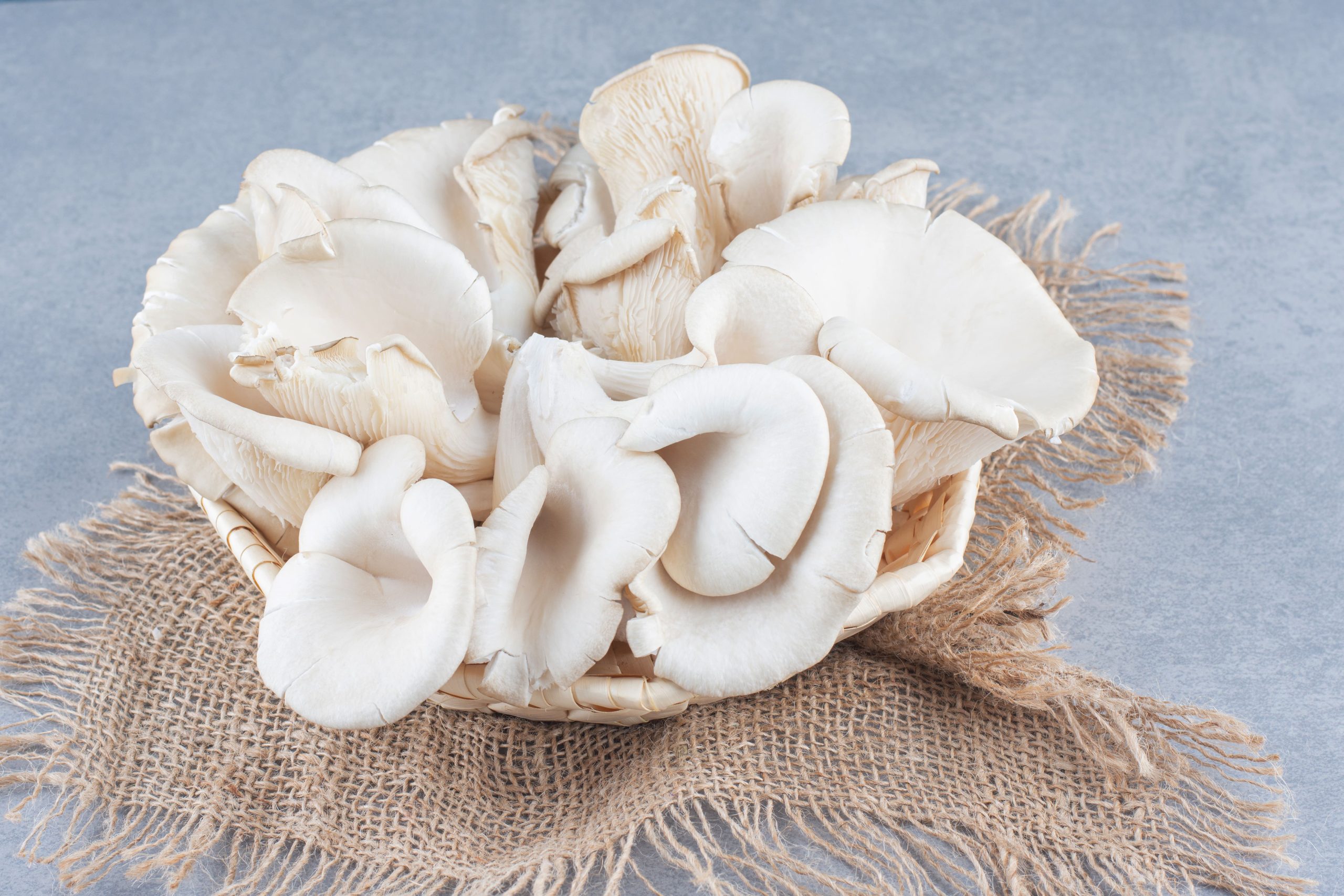Benefits of Mushrooms in our Daily Diet
Which are the nutritious types of mushrooms?
There are thousands of mushroom varieties and each of them may have different nutrition. Among the mushrooms, the Grey Oyster mushroom (Pleurotus sajor-caju) in Figure 1 and Brazil mushroom (Agaricus blazei) in Figure 2 contain higher amounts of protein, where the protein ranges from 31% to 37%, while oyster mushrooms especially King Oyster (Pleurotus eryngii) contain high amounts of dietary fiber. (1,2) The nutrient content of the Giant Oyster mushroom (Pleurotus giganteus) in Figure 3 is higher where it has protein and dietary fiber just like other mushrooms, but it does possess antioxidant, genotoxic, and liver-protective properties. (1) The high potassium level and the presence of bioactive compounds, mainly the triterpenoids, could be also responsible for the brain. (1)
In all, including any mushroom in your meal will be a good choice, they all provide great nutrition to us, but the most important thing to take note of is the cooking method.



What are the health benefits of mushrooms?
Mushrooms are nutritious as they are high in protein, fiber, vitamins, and minerals contents, and have low-fat levels. (3) They are also good sources of vitamins and minerals with high levels of vitamin Bs and traces of Vitamin C, D, and E.(1) Vitamin Bs are important in cell functioning including body metabolism, generating new blood cells, and maintaining healthy cells, and other body tissues.
Protein
For people who are practicing a vegetarian diet, mushrooms will be a great source of protein. By including mushrooms in your meal, you can increase your protein intake, particularly essential amino acids. Amino acids are the breakdown of the protein and they are important in body functions such as building muscle and repairing the cells. These essential amino acids are unable to be produced by the human body and it is crucial to obtain them through diet.
β-glucans
An interesting fact about mushrooms, β-glucans, is their main polysaccharides. Approximately half of the fungal cell wall mass is constituted by β-glucans. Β-glucans have been found to have a potential effect on health conditions including anticancer, anticholesterolemic, antioxidant, and neuroprotective activities. (1,4) Also, it is getting popular nowadays in boosting the immune system as they can induce both innate and adaptive immune responses. (4) This can protect the human body with a better performance of the immune system to defend against the virus or bacteria if any. (4)
Sterol
Sterol has been widely studied for its heart-protecting properties. Mushrooms contain sterol and polyunsaturated fatty acids (PUFA) that both play an important role in the prevention of cardiovascular diseases. (6) Besides, the antioxidant of mushrooms has a high biological effect on degenerative malfunctions such as Alzheimer’s disease. (7)
Dietary fiber
The dietary fiber from mushrooms could be degraded by the gut microbiota and produce short-chain fatty acids which are the food for gut microbiota (gut bacteria). It may show potential effects on some gastrointestinal diseases such as Inflammatory Bowel Disease (IBD) and improving the digestive system.
How should we cook mushrooms?
Cooking methods may affect the nutrients of food, especially the vitamins and minerals content. As mushrooms do contain some vitamins and minerals such as Vitamin C, Vitamin Bs, and potassium, it is recommended to go for sautéing or stir-frying. Both of these methods preserve the nutrients better as they require a shorter cooking time and cooking without water prevents the loss of heat-sensitive vitamins.

Preparation and storage of mushroom
The mushrooms purchased from the grocery store are safe to eat. However, it is important to never eat wild mushrooms, as you are unsure of the poisonous effects of the mushrooms. When going for groceries, you may select mushrooms with firm whole caps and an even texture. After purchasing, make sure you properly store them in a brown paper bag with the top open as this helps to absorb the moisture and prevent them from spoiling easily. You will need to take note that you do not wash or clean the mushroom until just before use. During cleaning of the mushrooms, you can either place the mushrooms under gentle running water and pat dry with a paper towel or brush the dirt off with a dampened paper towel. However, you have to avoid fully immersing or soaking your mushrooms to prevent them from waterlogging.
What are some precautions when eating mushrooms?
Some precautions need to be taken before taking mushrooms.
Alcohol
You need to avoid having alcohol with edible mushrooms, especially Coprinus species as it will cause toxicity when consuming both together. (8)
Medication
You are not recommended medication with mushrooms, especially mushrooms with potential therapeutic effects as they might be potential for drug-nutrient interaction.


References:
- Valverde M, Hernández-Pérez T, Paredes-López O. Edible Mushrooms: Improving Human Health and Promoting Quality Life. International Journal of Microbiology. 2015;2015:1-14.
- Nutritional and medicinal benefits of Oyster (Pleurotus) mushrooms: a review. Fungal Biotec. 2021;1(2):65-87.
- Mattila P, Könkö K, Eurola M, Pihlava J, Astola J, Vahteristo L et al. Contents of Vitamins, Mineral Elements, and Some Phenolic Compounds in Cultivated Mushrooms. Journal of Agricultural and Food Chemistry. 2001;49(5):2343-2348.
- Mirończuk-Chodakowska I, Kujawowicz K, Witkowska A. Beta-Glucans from Fungi: Biological and Health-Promoting Potential in the COVID-19 Pandemic Era. Nutrients. 2021;13(11):3960.
- Kalač P. A review of chemical composition and nutritional value of wild-growing and cultivated mushrooms. Journal of the Science of Food and Agriculture. 2012;93(2):209-218.
- Guillamón E, García-Lafuente A, Lozano M, D´Arrigo M, Rostagno M, Villares A et al. Edible mushrooms: Role in the prevention of cardiovascular diseases. Fitoterapia. 2010;81(7):715-723.
- Rai S, Mishra D, Singh P, Vamanu E, Singh M. Therapeutic applications of mushrooms and their biomolecules along with a glimpse of in silico approach in neurodegenerative diseases. Biomedicine & Pharmacotherapy. 2021;137:111377.
- Clarke D, Crews C. Natural Toxicants: Mushrooms and Toadstools, Encyclopedia of Food Safety, 2014;2:Pg 269-276.
Article by Li Zhe Xhuen, Dietitian, Sri Kota Specialist Medical Centre, Klang

